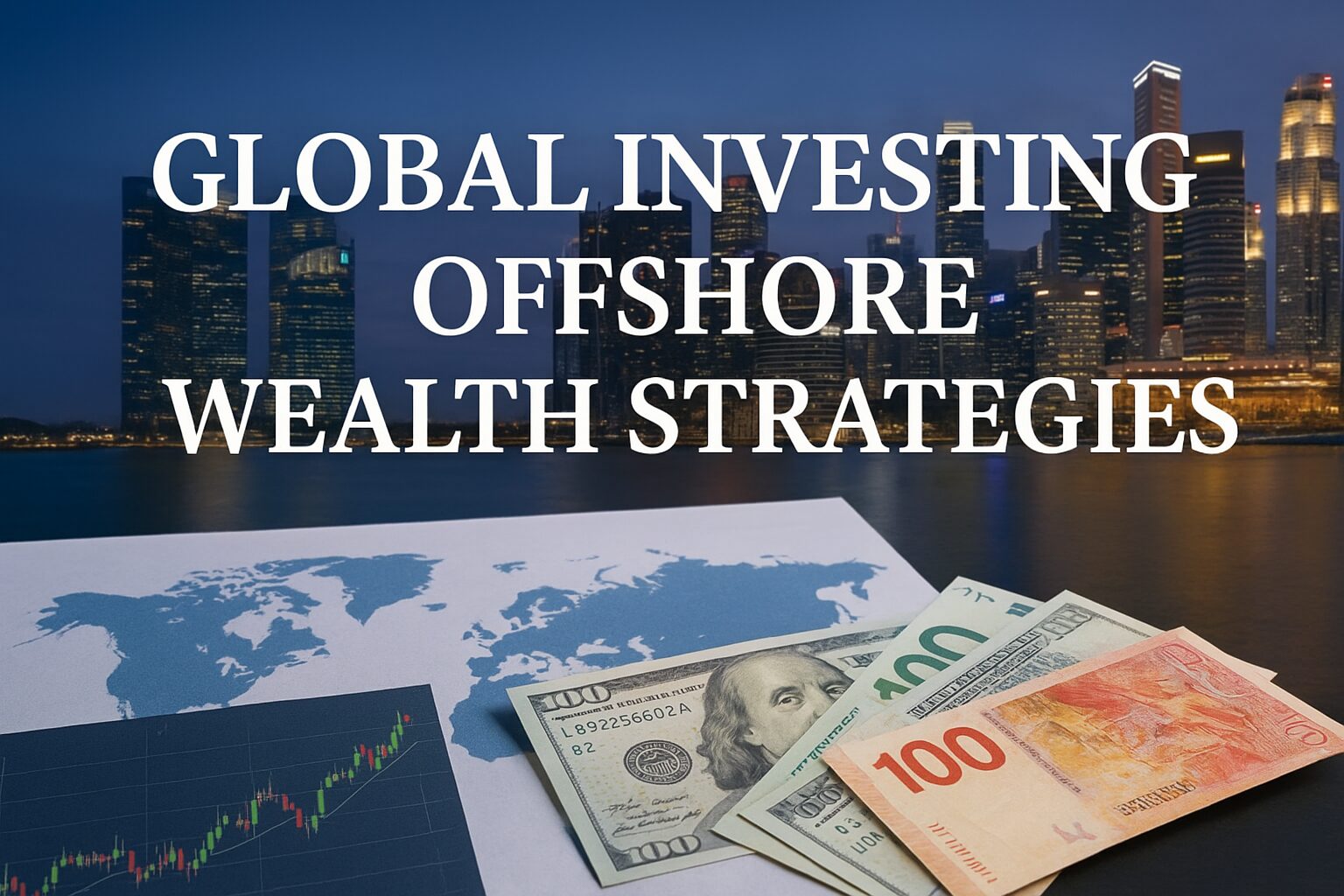Global investing offers tremendous opportunities for wealth preservation, portfolio growth, and long-term financial freedom. However, alongside the opportunities lie a web of risks, regulatory complexities, and compliance obligations that every global investor must carefully navigate. Building wealth through offshore savings and diversified global portfolios is not just about chasing returns—it is equally about ensuring sustainability, legality, and security in every decision.
In this article, we will take a deep dive into:
- The Major Risks of Offshore and Global Investing
- Regulatory and Compliance Frameworks Across Jurisdictions
- Due Diligence: How to Vet Banks, Funds, and Advisors
- Execution Checklist for Investors
- Best Practices for Sustainable Global Wealth Management
1. The Major Risks of Offshore and Global Investing
Even the most sophisticated investors face risks when dealing with offshore savings accounts, multi-currency strategies, or global investment vehicles. These risks fall into several categories:
a. Market Risks
- Currency Fluctuations: A strong dollar may erode the returns of your overseas holdings, while sudden devaluations in emerging markets can lead to catastrophic losses.
- Global Market Volatility: Political instability, interest rate shifts, or trade wars can significantly impact global equities, bonds, and commodities.
b. Regulatory and Legal Risks
- Tax Compliance: Many countries impose strict reporting requirements for offshore accounts (e.g., FATCA in the U.S. and CRS globally). Failure to comply can result in severe penalties.
- Capital Controls: Certain jurisdictions may suddenly restrict foreign currency withdrawals or limit cross-border transfers, trapping your assets.
c. Counterparty and Institutional Risks
- Bank Failures: Smaller offshore banks may lack the stability of major global institutions.
- Fraudulent Schemes: Promises of “guaranteed returns” from unregulated offshore investment schemes are common traps for inexperienced investors.
d. Geopolitical Risks
- Sanctions and Blacklists: If a jurisdiction faces international sanctions, accounts and investments there can become inaccessible overnight.
- Expropriation Risks: Some emerging economies pose the risk of sudden changes in property rights or government takeovers of assets.
2. Regulatory and Compliance Frameworks
Understanding and complying with international regulations is critical for building a sustainable offshore strategy.
a. FATCA (Foreign Account Tax Compliance Act) – U.S. Investors
- Requires U.S. taxpayers to disclose all offshore accounts exceeding $10,000.
- Banks worldwide must report U.S. account holders to the IRS.
b. CRS (Common Reporting Standard) – Global Framework
- Adopted by over 100 countries.
- Automatic exchange of tax and financial data between jurisdictions.
c. AML & KYC Requirements
- Offshore banks require full Know Your Customer (KYC) documentation.
- Expect to provide passport copies, proof of address, tax IDs, and source of funds declarations.
d. Residency-Based vs. Citizenship-Based Taxation
- U.S. (citizenship-based): All global income is taxable regardless of residency.
- Most other countries (residency-based): Tax obligations depend on your fiscal residence.
3. Due Diligence: How to Vet Banks, Funds, and Advisors
Selecting reliable offshore partners is the cornerstone of risk management.
- Bank Selection Checklist:
- Regulated by a reputable central bank (e.g., MAS in Singapore, FINMA in Switzerland).
- Offers deposit insurance or strong capital reserves.
- Multi-currency and investment platform integration.
- Fund and Asset Manager Due Diligence:
- Track record of at least 10 years.
- Independent audits and transparent reporting.
- Licensed under global regulators (e.g., SEC, FCA, MAS).
- Advisor Vetting:
- Must be fee-based or transparent in commissions.
- Verify credentials (CFA, CFP, STEP for estate planning).
- Check for conflict of interest disclosures.
4. Execution Checklist for Investors
Here is a step-by-step practical framework for executing an offshore savings and global investment strategy:
- Define Objectives
- Are you optimizing for tax savings, asset protection, or long-term growth?
- Define your risk tolerance and liquidity needs.
- Select Jurisdiction
- Choose stable, reputable offshore hubs: Singapore, Switzerland, Luxembourg, Cayman Islands, Hong Kong.
- Open Multi-Currency Offshore Accounts
- Ensure integration with global trading platforms.
- Diversify across USD, EUR, CHF, SGD, and HKD.
- Design Global Portfolio
- Allocate across dividend stocks, international bonds, REITs, and ETFs.
- Use hedging tools (currency forwards, gold, inflation-linked bonds).
- Implement Compliance Protocols
- File all required tax forms (FBAR, FATCA, CRS disclosures).
- Maintain digital and physical copies of documentation.
- Ongoing Monitoring
- Annual portfolio stress tests.
- Regular reviews of bank ratings and political stability.
- Quarterly review of tax obligations.
5. Best Practices for Sustainable Global Wealth Management
- Keep Records Organized: Maintain meticulous documentation of every account, transfer, and investment.
- Balance Risk and Reward: Avoid overconcentration in high-risk emerging markets.
- Professional Guidance: Use global tax attorneys and cross-border financial advisors for compliance.
- Scenario Planning: Always maintain exit strategies—alternate accounts, secondary citizenships, or backup jurisdictions.
- Long-Term Discipline: The true power of offshore strategies lies in compounding wealth over decades, not short-term speculation.
Conclusion: Building Sustainable Global Wealth
Global investing is no longer an option reserved for the ultra-wealthy—it is a necessity for anyone seeking resilience, diversification, and long-term financial security. Offshore accounts, multi-currency portfolios, and global asset classes can unlock powerful advantages, but only when paired with rigorous due diligence, compliance discipline, and a clear execution framework. The true measure of success in global wealth management is not short-term returns, but the ability to preserve and grow assets sustainably across generations. By balancing opportunity with prudence, investors can position themselves not only to weather global uncertainties, but also to build lasting financial freedom.
